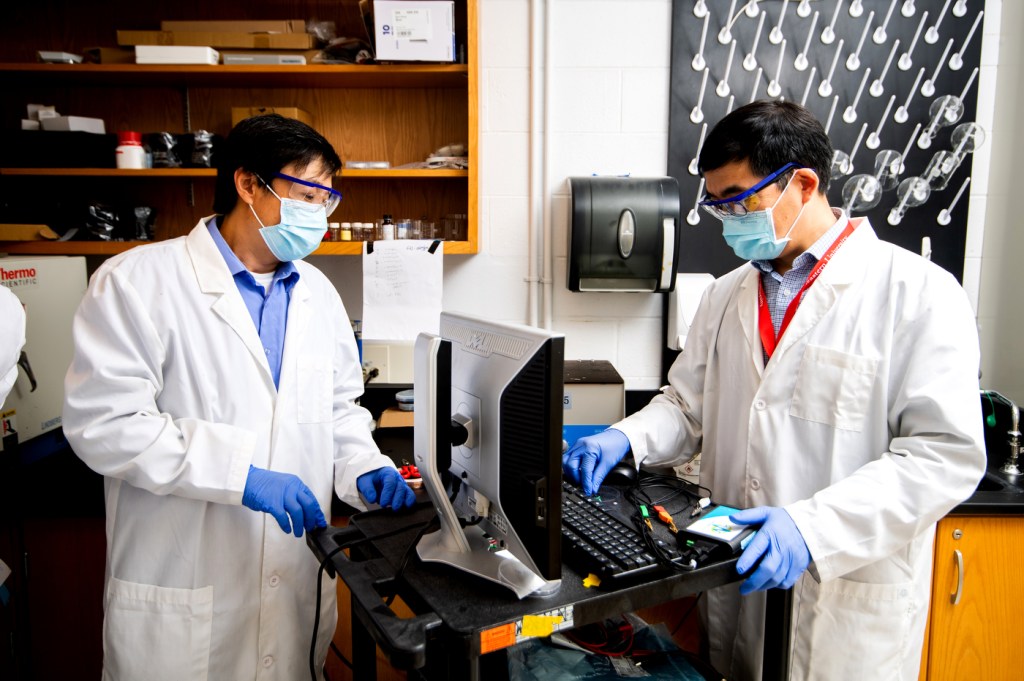Can wastewater samples predict the next pandemic?

Northeastern engineering professors Nian Sun and Hongwei Sun have been recognized for their contribution to a new infectious disease-tracking technique that traces outbreaks using wastewater.
The two professors, collaborating with a team of researchers from multiple institutions, were participating in the Trinity Challenge, a competition to invent the most effective methods to ensure that health emergencies similar to the COVID-19 pandemic don’t upend societies in the future.
“The thing that inspired Northeastern to become a founding partner in the Trinity Challenge was the commitment to preventing the next pandemic,” said David Luzzi, senior vice provost of research and a member of the Trinity Challenge steering committee.
“In order to do that, we need an early warning system, similar to the one created in partnership with these Northeastern faculty, that can broadly sample for emerging pathogens in a cost-effective way,” said Luzzi.
The wastewater surveillance system proposed in the challenge is designed to operate in remote areas with little access to health services. The sensor that monitors the wastewater can produce real-time results, enabling a speedy response should an outbreak occur. The team received one of five third place awards, a sum of $660,000.
“Nian Sun and Hongwei Sun are faculty whose research is at the cutting edge of advanced technology,” says Luzzi. “They’re pushing the envelope of what we are capable of doing in the areas of sensing and capturing data from the environment.”
Dame Sally Davies, master of Trinity College, Cambridge, and former chief medical advisor to the United Kingdom, in September brought together Northeastern University, Microsoft, Google, the Bill & Melinda Gates Foundation, and other industry leaders to participate in the challenge.
“We have been looking for solutions from anyone, anywhere around the globe that can use data and analytics in a new and different way to identify, respond to and recover from disease outbreaks, with the potential to become an epidemic or a pandemic to help those in the global south and north,” Davies said in a press release. “The response we have received has been overwhelming.”
Over 30 Northeastern faculty members contributed to the Trinity Challenge in some capacity. In addition to submitting research proposals, university faculty also participated as reviewers to vet the research and select winners.
The Trinity Challenge board recognized 15 projects for their ingenuity in predicting, preventing, and responding to outbreaks and pandemics using data and analytics. But the awards are only secondary. “There’s no single winner,” said Luzzi. “It’s about solving the pandemic and preventing future emergencies.”
For media inquiries, please contact media@northeastern.edu.




